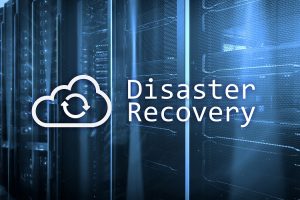The importance of data backup and disaster recovery planning

In an age where a lot of business operations are conducted digitally, it has never been more important to have a backup and disaster recovery plan. Why is it so important? Read on to find out.
What is a data backup?
Backing up your files and data means having copies in more than one location, other than just locally on your device, such as in the cloud or on an external hard drive.
What is a disaster recovery plan?
Having a disaster recovery plan in place means you will be able to access the file copies quickly in the event of data loss, file damage, data corruption, a cyber attack, or a natural disaster, to not cause too much disruption to business operations.
The cost of data loss
Data loss can be very costly and distressing. Even small data losses will cost you in downtime and lost revenue. With more business being done online, the likelihood and impact of data loss is increasing.
Last-minute attempts to recover lost data, without a solid disaster recovery plan, can be expensive. The only way to prepare is to plan and prepare ahead of a potential data loss.
The cost of data loss and the disasters that precede them is just one of the reasons that all businesses need a backup and disaster recovery plan.
Threats to data
Data is a valuable component of running a business, which opens it up to a number of threats that can lead to data leaks or data loss.
Data is at risk of being lost every day due to physical device damage or natural disasters, or cyber-attacks, or other human or technical threats.
It is not always possible to prevent these threats, but having robust cybersecurity, a data backup, and a disaster recovery plan will help to protect your data in these events.
Failed security measures
It is important to remember that even the most considered security measures are not fail-proof. Viruses are constantly evolving and can do your business great harm.
If a business is attacked by a ransomware virus, its data will be withheld and a ransom payment demanded in exchange for the data being restored. Even after paying what they ask, they may not restore the files.
By having data stored in multiple locations, including remotely in the cloud where it will be unaffected, you will be able to retrieve data without giving in to demands.
Limit the scope of damage to your business with a data backup and disaster recovery plan. With a plan in place, the length of time in which your business is affected by data loss, and the impact this will have, will be significantly reduced.
For professional help with backing up your data, and putting a disaster recovery plan together, seek advice from a trusted IT provider, such as ECL.
Here at ECL, we have a track record of successfully managing cybersecurity threats and data loss and recovery. To learn more, get in touch with our IT experts.
IT Support
ECL recognises that every client is different, and every client has a different IT support requirement. Whatever the size of your business, we can offer a support scenario to suit your needs.
Cloud Services
Whether your business already uses Cloud services or you’re considering the Cloud as a possible way forward, talk to us first. We can provide anything from fully hosted IT infrastructures on our own ECL Private Cloud, to simple on-line backups. We can also give expert advice on Office 365 and other Cloud platforms.
Disaster Recovery
How would losing access to your IT systems and data for days, or even weeks, affect your business? For many if not most companies this would be a nightmare scenario, with potentially very serious consequences.
Office 365
Cloud services could potentially lower your overall costs and gives your employees all the tools they need alongside the correct layers of security and compliance.
